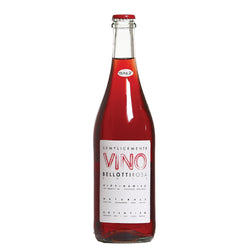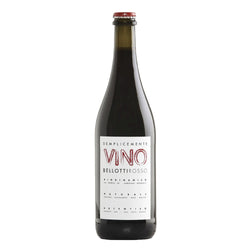Nel 1977, appena diciottenne, Stefano Bellotti prende in mano l’azienda agricola di famiglia, situata al confine tra Piemonte e Liguria, a Novi Ligure. L’azienda, proprietà della famiglia Bellotti dal 1930, risiede all’interno della DOCG Gavi, veniva utilizzata dal padre medico per rifuggire dalla città. Stefano inizia con diverse coltivazioni ed un risicato ettaro vitato; inoltre, grazie all’incontro con uno dei suoi primi maestri, Pietro Toccalino, vicino di casa, impara le basi della vinificazione. Due sono le scelte cruciali di Stefano che caratterizzano radicalmente tutto ciò che oggi rappresenta Cascina degli Ulivi: la prima è la via della viticoltura, in parte forzata dalla morfologia e fisionomia dei terreni, argille acido-ferrose, non generosi e difficili da coltivare; la seconda invece è l’approccio agricolo ecologista, una scelta anche politica, di quei tempi considerata fortemente antiprogressista, e quindi più difficile che mai. I suoi vini, tutti da fermentazione spontanea, senza aggiunte di anidride solforosa e fuori dalle DOC, hanno ridato valore e dignità all’uva Cortese e sono tra i pochi capaci di raccontare un territorio deturpato da legislazione, enologia e mercato, che oggi produce vini privi di qualsiasi profondità. Tra i vini più rappresentativi il Filagnotti e il Montemarino, le due anime di Cascina degli Ulivi.
Nel 1977, appena diciottenne, Stefano Bellotti prende in mano l’azienda agricola di famiglia, situata al confine tra Piemonte e Liguria, a Novi Ligure. L’azienda, proprietà della famiglia Bellotti dal 1930, risiede all’interno della DOCG Gavi, veniva utilizzata dal padre medico per rifuggire dalla città. Stefano inizia con diverse coltivazioni ed un risicato ettaro vitato; inoltre, grazie all’incontro con uno dei suoi primi maestri, Pietro Toccalino, vicino di casa, impara le basi della vinificazione. Due sono le scelte cruciali di Stefano che caratterizzano radicalmente tutto ciò che oggi rappresenta Cascina degli Ulivi: la prima è la via della viticoltura, in parte forzata dalla morfologia e fisionomia dei terreni, argille acido-ferrose, non generosi e difficili da coltivare; la seconda invece è l’approccio agricolo ecologista, una scelta anche politica, di quei tempi considerata fortemente antiprogressista, e quindi più difficile che mai. I suoi vini, tutti da fermentazione spontanea, senza aggiunte di anidride solforosa e fuori dalle DOC, hanno ridato valore e dignità all’uva Cortese e sono tra i pochi capaci di raccontare un territorio deturpato da legislazione, enologia e mercato, che oggi produce vini privi di qualsiasi profondità. Tra i vini più rappresentativi il Filagnotti e il Montemarino, le due anime di Cascina degli Ulivi.




